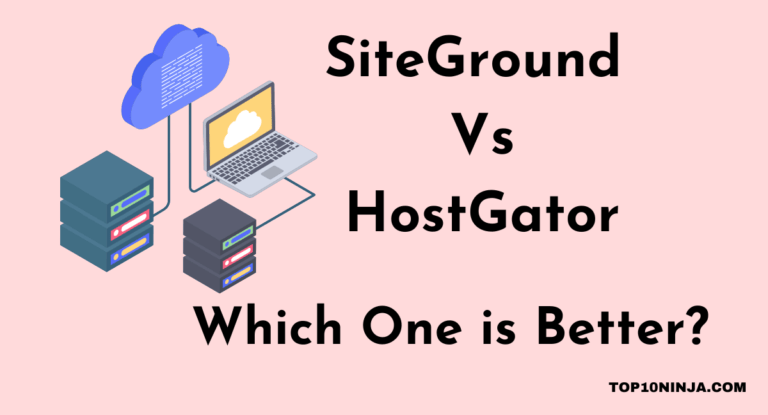In this FlyWheel Vs WP Engine comparison, we will compare the two WordPress Powerhouse hosting providers and find out how they fare against each other.
We will thoroughly analyze both hosting providers’ pricing, ease of use, performance, extra features, security, and customer support.
WP Engine vs Flywheel (2024): Which One’s Better?
![Flywheel Vs WP Engine: Two WordPress Powerhouses [2024] 1 FlyWheel Vs WP Engine](https://eb6k94xmq2p.exactdn.com/wp-content/uploads/2023/07/FlyWheel-Vs-WP-Engine-1024x553.png?strip=all&lossy=1&ssl=1)
Flywheel
Like
- Flywheel doesn’t mess around with “unlimited” marketing. They tell you upfront how many visitors you’re allowed per month.
- They have a smaller entry level package than WP Engine (for 5,000 visitors). This is great if you have a low traffic site but still want a premium host.
- They do free migrations. It takes a full day for them to move your site over, but they take care of everything for you and fix any problems that occur.
- Flywheel’s servers are legit. I’ve had no downtime, and it’s running a little faster than SiteGround.
- It’s easy to scale as your monthly traffic increases. You just pay more without having to worry about switching servers.
- Flywheel’s support is excellent. They know WordPress well and respond to questions within a couple of hours.
- Flywheel is perfect for designers and developers with clients. You can create “Blueprints” where you can package together plugins and themes and pull them all onto a new site with just one click.
- You get ONE SFTP login to manage ALL your Flywheel clients. You can also manage all of your customers inside your Flywheel account with Flywheel’s streamlined collaboration. There’s no need for multiple passwords or asking your clients to share theirs.
- You can build a site locally with Flywheel’s subdomains for free. You can get the site running on Flywheel’s subdomain and then push it to your client’s account when you’re done.
- Like WP Engine, they do a great job keeping hackers at bay. Things like intelligent IP blocking, limited login attempts, and free malware removal are crucial to prevent hacking. Each of these is included in every package.
- You get your choice of 10 different locations for your server.
Dislike
- Flywheel doesn’t own Flywheel.com and it doesn’t even rank first in Google for “Flywheel.” I’ve gone to the wrong site many times. This is a small detail but it’s still annoying.
- This company is still a baby. It launched at the end of 2013. You never know how a company will scale its services as it grows.
- The pricing is simple. It’s $15 per WordPress install, then you pay more as your traffic increases. WP Engine is priced the same ($30 for 25,000 visitors). This is on the expensive side.
- While I like that Flywheel doesn’t use the “unlimited bandwidth” ploy, they have a weird way of deciphering who’s a visitor. For instance, if an image from your site is shared on Twitter, that counts as a visitor to your site, and any hotlinking will count as well. Traffic from bots is counted, yet there are ways Flywheel could keep bots out via .htaccess.
- They have phone and chat support, but it’s not available during the weekends or on weekday nights. This doesn’t make sense to me, nor is it acceptable for a premium host.
- You’ll need to host your email elsewhere. Zoho is a great free option and G Suite, which I use, is the best premium option.
WP Engine
Like
- WP Engine doesn’t play the “unlimited bandwidth” game. They go a step further. Rather than give an abstract bandwidth allowance number in GB, they tell you how many visitors you’re allowed per month.
- You can only host WordPress sites. Some people see this as a negative, but I love it. They’ve found their niche, and it’s allowed them to hire WordPress specialists as support representatives (read more on this below).
- They have tons of helpful guides, which are especially useful if you’re looking to transfer a site from an old host.
- You have a choice of three server locations (U.S., U.K., and Belgium).
- They do everything possible to keep out hackers, and if something happens, they fix it for free. That gives you tremendous peace of mind.
- Hosting is super scalable. There is no moving of servers. When your traffic increases, you pay more.
- They have a WordPress plugin that helps you transfer your WordPress site from the old host. It makes everything easy. If your site is simple, it’ll take under an hour to move it.
- You can set up your WordPress before you change your domain’s DNS settings. WP Engine provides a subdomain (e.g. username.wpengine.com). You may get your WordPress setup on this subdomain and then point your domain to your IP address.
- They have a “staging” area where developers can work on changes to a site without changing the live version. Once the new version is ready to go, all you have to do is press a button to make it live.
- All the support representatives are native English speakers.
- The uptime is fantastic.
- WP Engine assumes you’ll be moving a site from your previous host, and not starting a fresh one like most hosts do. This is smart. If you’re at the stage that you need a premium web host, you probably already have a site running.
- WP Engine is excellent for developers and designers. If you have multiple clients, you can organize them inside your WP Engine using “Workspaces.” This makes it easy to create a site for a client and then just push it over to their account when you’re finished. There’s no need to change the site’s server. WP Engine just changes the account owner and billing information.
- I’ve tried WP Engine multiple times over the last four years. My list of “Things I Hate” used to be bigger because SEO issues, customer service, slow site setup, and SFTP issues hampered them. But they have done a lot of work to combat those problems.
Dislike
- If you want to host more than one site, it’s going to cost you $100 a month, whereas just one site is $29 a month. That’s steep, even with the added features.
- They are a new company, founded in 2010. You never know how scaling up will affect their support and performance.
- Some WordPress plugins are banned.
- You can’t host your email with them. I always set up a G Suite account to host my email. Most people set up their email account through their web host’s cPanel. If you don’t want to spend money on email hosting, I suggest you check out Zoho.
- For the extra cash you’re spending, you should get premium support. When I clicked on “Live Support,” I had connection issues about half the time. Also, the live chat isn’t always online, which is bad news when you have a problem you need solved immediately.
- There is no phone support for entry-level packages. The number is only for sales.
- Tickets take about four hours to get answered. This isn’t terrible, but it’s not what you’d expect from a premium host.
- For the price, you’d expect elite level servers, but I only saw a minimal upgrade when I changed one of my sites from SiteGround to WP Engine, which is certainly not enough to justify the cost.
- They’re not using their own servers, which is odd for a premium brand. They use Linode’s SSD Linux servers and mark up the price by branding themselves as an elite WordPress host. WP Engine obviously offers more than just server space but I find this annoying.
- I used to be an affiliate of WP Engine, and they didn’t like me. They had an issue with one of my sites because I was offering a coupon, which is against their terms of service. This is 100% my fault. I corrected the issue within an hour of being asked, yet I got booted from the program. I reached out to their affiliate manager(s) many times to no avail.
- Since their support staff only works with WordPress, there shouldn’t be too many issues that stump them. That doesn’t always seem to be the case when reading what other users are reporting.
- The migration service was sleek, but I have two issues. It didn’t bring over one of my directories with images in it. It looks like it only brings over images from inside wp-content/ directory. Also, my redirects didn’t get moved over either. Neither of these is a deal-breaker but it is worth noting.
Flywheel Vs WP Engine: Which one is for you?
WP Engine and Flywheel are both excellent options, but they’re overpriced if you’re not a designer or developer with clients.
However, if you have multiple clients and price is no object, these are a worthy investment.
Go with Flywheel if you have under 5,000 visitors or flip a coin if you have more than 5,000 because they’re both very similar.






